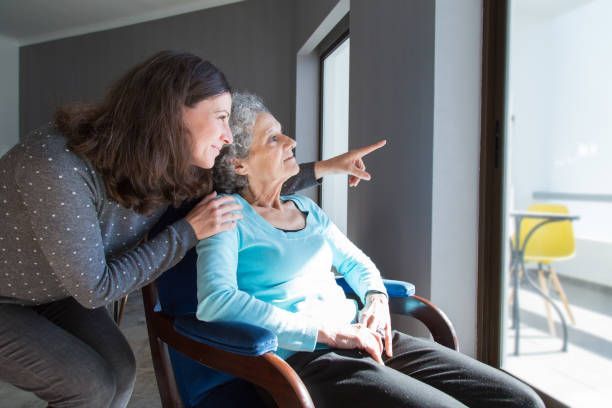Aging, Your Cardiovascular Health, and 7 Day Home Care
Learn more about the importance of your cardiovascular health starting today.
As we journey through life, the aging process is an inevitable part of the human experience. While we may anticipate the appearance of wrinkles and gray hair, aging also brings about changes to various aspects of our health. In this article, we will turn to the experts to discuss the topic of cardiovascular health as it relates to the aging process. At 7 Day Home Care, we understand the importance of aging gracefully and are here to support the residents of Manhattan, Queens, Brooklyn, Nassau County, and Suffolk County, New York, in their pursuit of healthy aging.
Your Cardiovascular System
The aging process affects our cardiovascular system by causing stiffening of blood vessels and arteries, which places additional strain on the heart. While the resting heart rate remains relatively stable, the heart may not respond as robustly during physical activities, increasing the risk of conditions like high blood pressure. According to the National Institute on Aging, "changes that happen with age may increase a person's risk of heart disease. A major cause of heart disease is the buildup of fatty deposits in the walls of arteries over many years. The good news is there are things you can do to delay, lower, or possibly avoid or reverse your risk. "The most common aging change is increased stiffness of the large arteries, called arteriosclerosis (ahr-teer-ee-o-skluh-roh-sis), or hardening of the arteries. This causes high blood pressure, or hypertension, which becomes more common as we age." The National Institute on Aging states further, "High blood pressure and other risk factors, including advancing age, increase the risk of developing atherosclerosis (ath-uh-roh-skluh-roh-sis). Because there are several modifiable risk factors for atherosclerosis, it is not necessarily a normal part of aging. Plaque builds up inside the walls of your arteries and, over time, hardens and narrows your arteries, which limits the flow of oxygen-rich blood to your organs and other parts of your body. Oxygen and blood nutrients are supplied to the heart muscle through the coronary arteries. Heart disease develops when plaque builds up in the coronary arteries, reducing blood flow to your heart muscle. Over time, the heart muscle can become weakened and/or damaged, resulting in heart failure. Heart damage can be caused by heart attacks, long-standing hypertension and diabetes, and chronic heavy alcohol use."
According to the Cleveland Clinic, you may be more likely to develop cardiovascular disease if you have risk factors such as:
- High blood pressure (hypertension).
- High cholesterol (hyperlipidemia).
- Tobacco use (including vaping).
- Type 2 diabetes.
- Family history of heart disease.
- Lack of physical activity.
- Having excess weight or obesity.
- Diet high in sodium, sugar and fat.
- Overuse of alcohol.
- Misuse of prescription or recreational drugs.
- Preeclampsia or toxemia.
- Gestational diabetes.
- Chronic inflammatory or autoimmune conditions.
- Chronic kidney disease.
The Mayo Clinic provides additional risks as follows:
- Age. Growing older increases the risk of damaged and narrowed arteries and a weakened or thickened heart muscle.
- Sex. Men are generally at greater risk of heart disease. The risk for women increases after menopause.
- Stress. Unrelieved stress may damage the arteries and worsen other risk factors for heart disease.
- Poor dental health. It's important to brush and floss your teeth and gums often. Also get regular dental checkups. Unhealthy teeth and gums makes it easier for germs to enter the bloodstream and travel to the heart. This can cause endocarditis.
Cardiovascular Disease Symptoms
According to the Cleveland Clinic, "cardiovascular disease symptoms can vary depending on the cause. Older adults and people assigned female at birth may have more subtle symptoms. However, they can still have serious cardiovascular disease." The following is a list of symptoms provided by the Cleveland Clinic.
Symptoms of heart issues
- Chest pain (angina).
- Chest pressure, heaviness or discomfort, sometimes described as a “belt around the chest” or a “weight on the chest.”
- Shortness of breath (dyspnea).
- Dizziness or fainting.
- Fatigue or exhaustion.
Symptoms of blockages in blood vessels throughout your body
- Pain or cramps in your legs when you walk.
- Leg sores that aren’t healing.
- Cool or red skin on your legs.
- Swelling in your legs.
- Numbness in your face or a limb. This may be on only one side of your body.
- Difficulty with talking, seeing or walking.
What you can do to reduce the risk of heart disease
- Incorporate physical activity: Engage in regular, moderate physical activities like walking and swimming to maintain a healthy weight and reduce the risk of heart disease.
- Adopt a healthy diet: Prioritize vegetables, fruits, whole grains, high-fiber foods, and lean sources of protein, while limiting saturated fats and salt.
- Quit smoking: Seek assistance from your healthcare provider to quit smoking, which contributes to arterial hardening.
- Manage stress: Practice stress-reduction techniques such as meditation, exercise, or talk therapy.
- Prioritize sleep: Aim for seven to nine hours of quality sleep each night to support heart and blood vessel health.
The information provided in this article is for general informational purposes only. It is not a substitute for professional medical advice, diagnosis, or treatment. Always consult with a qualified healthcare provider for personalized guidance regarding your cardiovascular health and any specific medical conditions or concerns you may have.
As we navigate the journey of aging, it is crucial to stay informed and proactive about our health. By following the advice of experts, maintaining a healthy lifestyle, and seeking regular medical check-ups, we can empower ourselves to age gracefully while prioritizing the well-being of our cardiovascular system. Remember that while we cannot halt the aging process, we can make choices that enable us to lead active, fulfilling lives and cherish moments with loved ones for years to come.
Contact 7 Day Home Care, the most responsive team in home care today to learn how we provide outstanding home care services in Manhattan, Queens, Brooklyn, Nassau County, and Suffolk County, New York for individuals who need assistance with daily living activities.
Brian Callahan
7 Day Home Care










